AIJAZ HUSSAIN
Tue, September 5, 2023
SRINAGAR, India (AP) — The players dribble and run like in any other soccer game. But within a minute or two, some stop in huff and puff, before pushing themselves on in an unusual challenge high in India's remote and mountainous desert region of Ladakh.
It's the first of its kind “climate-friendly” football tournament in this ecologically fragile territory where oxygen is thin and breathing is hard. And when the wind picks up, usually in the afternoons, it brings sand and dust that cover the high-altitude stadium’s synthetic turf.
The organizers say the ongoing “climate cup” in the town of Leh is the first in Asia to be held at an altitude of more than 11,000 feet (3,350 meters) and with a minimum carbon footprint. Four teams are participating in the Sept. 1-7 matches, held on alternate days.
Before the matches began, the players took at least two days to acclimatize to the altitude. Still, they can’t play with the same intensity as on lower altitudes, organizers said. In Leh, only a handful of posters and banners promote the matches; the organizers have relied heavily on social media to popularize the games, which are also streamed live on YouTube.
Electric buses are used to take players to and from the matches and all plastic is prohibited at the stadium. Players have been given multi-use aluminum sippers. Water is from a local spring and dispensers have been placed on dugouts.
The tournament is “our attempt to use sports for spreading awareness about the perils of climate change in Ladakh,” said Tashi Gyalson, a local administrator.
Spectators have been encouraged to bring in their own non-plastic water bottles. No chips or sodas are being provided and the players are served only traditional, organic Ladakhi food and locally grown fruit.
“Using a climate-friendly soccer tournament is a humble beginning. We are determined to fight climate change (in Ladakh) at multiple levels,” Gyalson said.
Nestled between India, Pakistan and China, the region is known for its inhospitable yet pristine highland passes and vast river valleys. In the past, it was an important part of the famed Silk Road trade route.
In more recent times, Ladakh has faced both territorial disputes and the stark effects of climate change. Its sparsely populated villages have witnessed shifting weather patterns that have altered people’s lives through floods, landslides, droughts and migrations.
Ladakh’s thousands of glaciers, which helped dub the rugged region one of the “water towers of the world,” are receding at an alarming rate, threatening the water supply of millions of people. The melting has been exacerbated by an increase in local pollution that has worsened due to the region’s militarization, further intensified by the military standoff between India and China since 2020.
With 300-plus days of sunshine a year, Ladakh gets only about 4 inches (100 millimeters) of rainfall annually, mainly in winter. In July, the number soared to 1.69 inches (42.8 millimeters) of rainfall in just one month — the highest in three decades.
“Recent trends are showing clear changes in climate patterns,” said Mukhtar Ahmed, with the Indian Meteorological Department.
Local officials say the soccer matches were organized keeping in mind some of these climate concerns.
“The entire DNA of the tournament is very organic,” said Shamim Meraj, who advised the local administration on organizing the tournament.
“You are thirsty, you go to the dispenser and refill your bottle, or drink like a schoolboy from the tap," he said. “You are hungry, you go grab some fruit.”
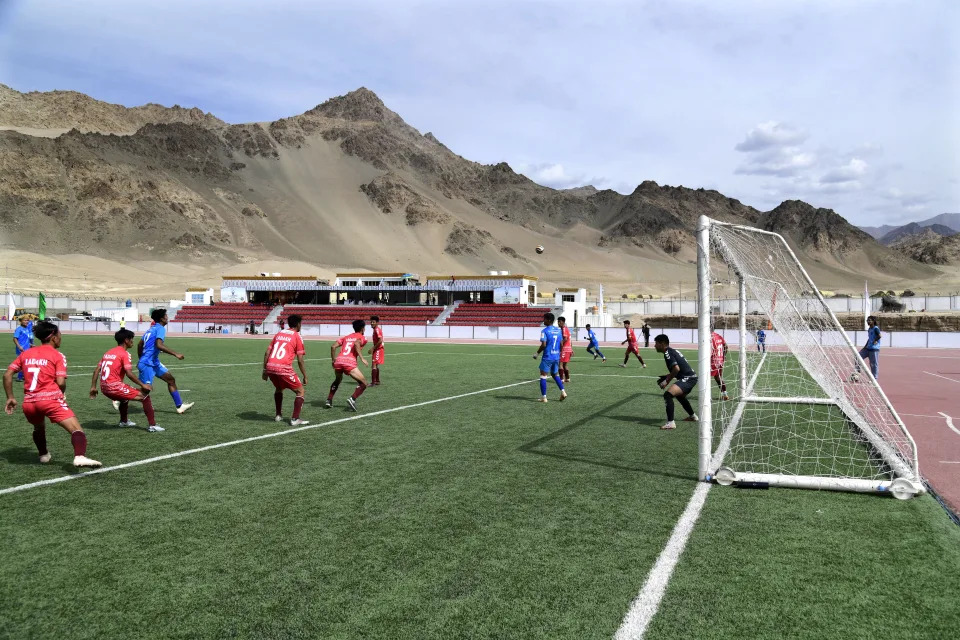
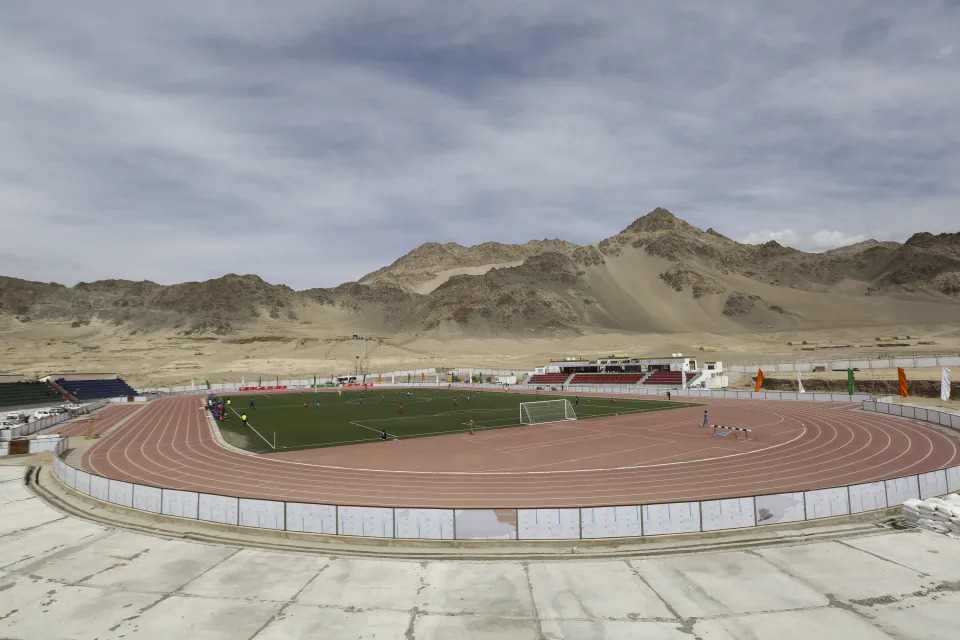

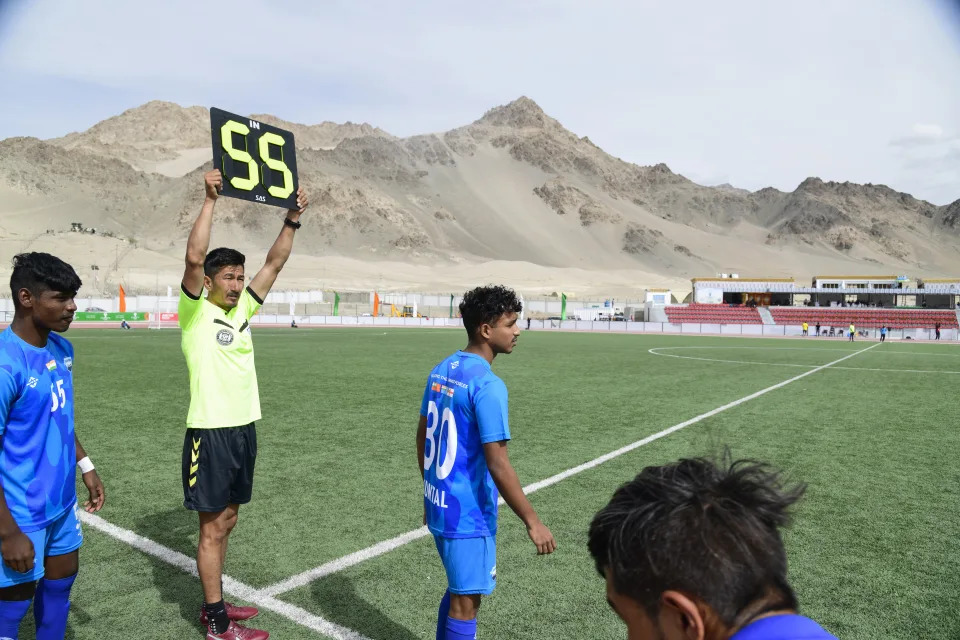
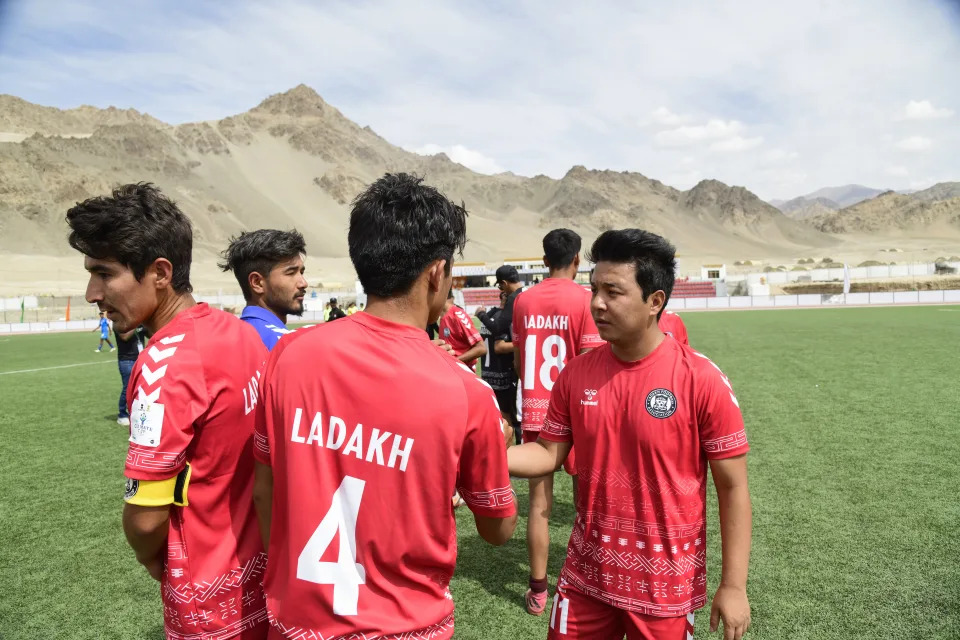
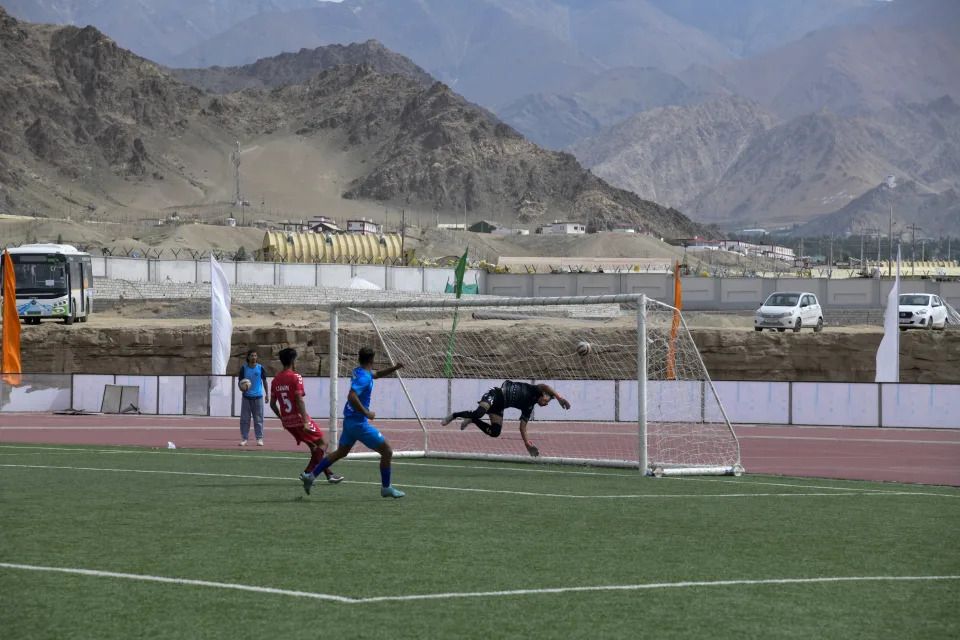

India Climate Friendly Soccer
No comments:
Post a Comment